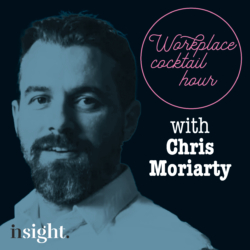To provide the best experiences, we use technologies like cookies to store and/or access device information. Consenting to these technologies will allow us to process data such as browsing behaviour or unique IDs on this site. Not consenting or withdrawing consent, may adversely affect certain features and functions.
The technical storage or access is strictly necessary for the legitimate purpose of enabling the use of a specific service explicitly requested by the subscriber or user, or for the sole purpose of carrying out the transmission of a communication over an electronic communications network.
The technical storage or access is necessary for the legitimate purpose of storing preferences that are not requested by the subscriber or user.
The technical storage or access that is used exclusively for statistical purposes.
The technical storage or access that is used exclusively for anonymous statistical purposes. Without a subpoena, voluntary compliance on the part of your Internet Service Provider, or additional records from a third party, information stored or retrieved for this purpose alone cannot usually be used to identify you.
The technical storage or access is required to create user profiles to send advertising, or to track the user on a website or across several websites for similar marketing purposes.
 The ongoing advancements in technology have made remote collaboration more feasible and seamless than ever before. Collaboration tools have become essential in ensuring the coexistence of the digital and physical workplace, both internally with employees and externally with clients. And in 2023, companies have been posting hybrid working related roles in record numbers, according to a new report from GlobalData. (more…)
The ongoing advancements in technology have made remote collaboration more feasible and seamless than ever before. Collaboration tools have become essential in ensuring the coexistence of the digital and physical workplace, both internally with employees and externally with clients. And in 2023, companies have been posting hybrid working related roles in record numbers, according to a new report from GlobalData. (more…)










 And No One Shouted Stop! seems to me to be an apt phrase to capture these post- pandemic times as we grapple with work and workplace dilemmas. It comes from the little-known but widely acclaimed
And No One Shouted Stop! seems to me to be an apt phrase to capture these post- pandemic times as we grapple with work and workplace dilemmas. It comes from the little-known but widely acclaimed 
 For many people, a large portion of the day is spent at the workplace. In fact, the average person will spend 90,000 hours at work over a lifetime. The Covid-19 pandemic saw the typical ‘workplace’ setting change for many people, after businesses around the globe were forced to adjust to a ‘work-from-home’ model. Now, three years later, we are starting to see more employees return to the office, with large corporations including JPMorgan, Chase, Apple and Google all announcing plans to bring their workers back to base.
For many people, a large portion of the day is spent at the workplace. In fact, the average person will spend 90,000 hours at work over a lifetime. The Covid-19 pandemic saw the typical ‘workplace’ setting change for many people, after businesses around the globe were forced to adjust to a ‘work-from-home’ model. Now, three years later, we are starting to see more employees return to the office, with large corporations including JPMorgan, Chase, Apple and Google all announcing plans to bring their workers back to base. 


![Gallup has published its 2023 Gallup Global Emotions report [registration] – a study of employee sentiment in the UK workforce](https://workplaceinsight.net/wp-content/uploads/2023/11/frustration-7505960_1280-250x250.png)

 In the first of a new series of news-based podcasts, I catch up with Chris Moriarty, the co-founder of Audiem and much besides. Over a glass of gin and tonic, we discuss the AI Safety Summit and the proclamations of imminent doom that came before and after it. We also talk about the covid inquiry and the toxic workplace culture it exposed as an intriguing subplot.
In the first of a new series of news-based podcasts, I catch up with Chris Moriarty, the co-founder of Audiem and much besides. Over a glass of gin and tonic, we discuss the AI Safety Summit and the proclamations of imminent doom that came before and after it. We also talk about the covid inquiry and the toxic workplace culture it exposed as an intriguing subplot. 
 This year’s London Real Estate Forum (LREF), held from 27-28 September at the Barbican, had a general air of optimism but tempered with the uncertainty of a general election in the next twelve months and elements of political and economic uncertainty globally. The day began with a state of the market discussion chaired by dRMM’s Sadie Morgan, with challenges facing the industry identified as the current valuation of the office market, the rate of housebuilding and the government’s lack of investment in infrastructure – the event coinciding with the furore over the cancelling of the northern part of HS2.
This year’s London Real Estate Forum (LREF), held from 27-28 September at the Barbican, had a general air of optimism but tempered with the uncertainty of a general election in the next twelve months and elements of political and economic uncertainty globally. The day began with a state of the market discussion chaired by dRMM’s Sadie Morgan, with challenges facing the industry identified as the current valuation of the office market, the rate of housebuilding and the government’s lack of investment in infrastructure – the event coinciding with the furore over the cancelling of the northern part of HS2. 












December 3, 2023
Tailored workplace management for modern organisations
by Paul Phillips • Comment, Technology, Workplace design